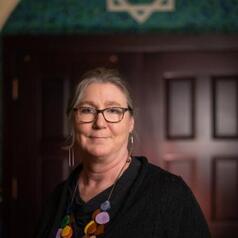
Sally Howell
Professor of History, University of Michigan-Dearborn
Sally Howell is professor of history at the University of Michigan–Dearborn. Her books include Arab Detroit 9/11: Life in the Terror Decade (2011), Old Islam in Detroit: Rediscovering the Muslim American Past (2014), and Hadha Baladuna: Arab American Narratives of Boundary and Belonging (2022). Old Islam in Detroit was named a Michigan Notable Book by the Library of Michigan and given the 2014 Evelyn Shakir Award. Howell is also a curator of public history projects including the Halal Metropolis exhibition series, the Seen Jeem Podcast, and Unsettled Lives: Displaced Iraqis in Metro Detroit.
Less ![]()
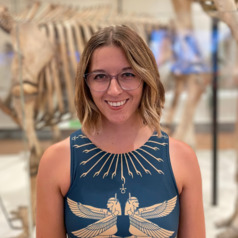
Sally Hurst
Adjunct Fellow - Faculty of Science and Engineering, Macquarie University
Sally Hurst is a palaeontologist, archaeologist and science communicator. She runs the Found a Fossil project, an online platform providing information to the general public on what to do if they ever find a fossil, or an Indigenous artefact, to raise awareness and promote the protection of Australia’s natural and cultural heritage. Sally’s research focuses on the intersection of heritage conservation, the role of museums, palaeontology, archaeology, and the communication of heritage information to the public.
Sally is a strong advocate for female inclusion in STEM, mentoring young girls with the Harding Miller Education Foundation, and running her own public speaking business where she is a visible role model for scientific careers. Sally was selected by Science and Technology Australia as one of 60 female and non-binary scientists from around Australia to be included in the Superstars of STEM program.
Sally is also a Museum Educator at the Australian Museum in Sydney, where she has the opportunity to discuss her own research, as well as explore topics on the natural world, evolution, and dinosaurs. This science communication role is supplemented by her inclusion in the Skype a Scientist program, as well as occasional gigs with Sydney Comedy Festival and Future Science Talks.
Less ![]()

Sally Jones
Reader in Entrepreneurship and Gender Studies, Manchester Metropolitan University
Less ![]()
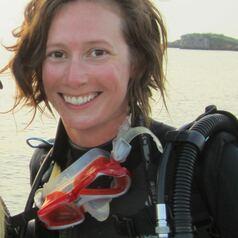
Sally Keith
Senior Lecturer, Lancaster University
Using coral reefs as a model system, my team aims to:
(1) figure out if, when, how and why animal behaviour can scale up to influence the diversity and distribution of life on Earth,
(2) identify and explain global geographical patterns in animal behaviour,
(3) capture the impact of environmental change on (1)&(2), predict ecological vulnerability into the future, and offer solutions to increase ecosystem resilience.
To achieve these aims, we combine purpose-built fieldwork with a macroecological approach, conducting behavioural research in multiple locations across the world. This broad geographic coverage allows us to identify generalisable "rules" for how animals behave and understand how behaviour is affected by an animal's biotic and abiotic environment in the real-world.
Less ![]()
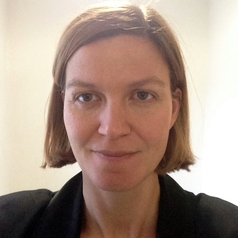
Sally King
PhD Candidate, Department of Global Health & Social Medicine, King's College London
I am currently writing a book based on my doctoral research findings that gender and race myths appear to trump the available empidemiological data when it comes to clinical and lay descriptions of menstrual health-related symptoms. I have a Master's degree in research methods (Qual & Quant), ten years experience as an evaluator of human rights policies and interventions (with a focus on gender equality), and ten years specialising in menstrual health research. I also founded the world's first evidence-based info hub on menstrual health and associated rights issues in 2016 (www.menstrual-matters.com).
Less ![]()
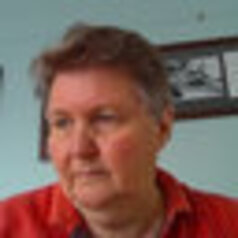
Sally Knipe
Associate Professor Education, Charles Darwin University
Sally Knipe is Associate Professor (Education) at Charles Darwin University. Sally is an experienced teacher and academic with an extensive background in the leadership and development of teacher education programs, which includes working as a national assessor of initial teacher education programs. Sally has published several articles in the areas of teacher education, school education as well as in the use of existing data.
Less ![]()
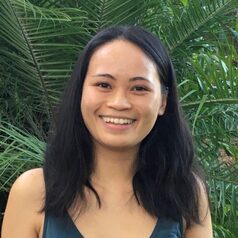
Sally Lau
Postdoctoral Research Fellow, James Cook University
I am interested in the evolutionary genetics of Southern Ocean benthic taxa. Currently investigating genome assemblies, evolutionary simulations, and the genomic signatures of glacial refugia, evolutionary innovation, seascape adaptation and historical ice sheet changes.
Less ![]()
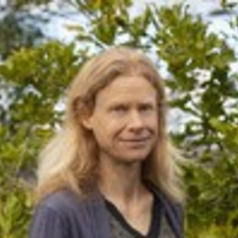
Sally Mackay
Senior Lecturer Epidemiology and Biostatistics, University of Auckland, Waipapa Taumata Rau
Sally’s career as a public health nutritionist has spanned three decades from working as a health promoter to academic. She began work with the Heart Foundation as a health promoter focusing on caterers and during this time completed a PGDip in Public Health. With a move to Nelson, she worked as a health promoter at the local public health unit and then with the Ministry of Health as senior advisor on the 2008/09 National Nutrition Survey. She completed a PhD at the University of Auckland with the INFORMAS research group on methods to monitor the cost and affordability of diets. This began a research career in monitoring food environments both in Aotearoa and globally with the INFORMAS network. She teaches population health nutrition at the University of Auckland and supervises Masters and PhD students. She is part of research teams developing the methods for the next national nutrition survey and evaluating the National Healthy Food and Drink Policy. Sally recently presented the keynote Muriel Bell lecture at the Nutrition Society of NZ conference in 2022 in recognition of her services to nutrition.
Less ![]()
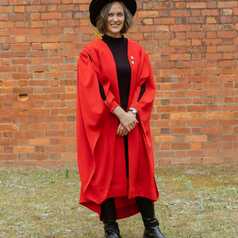
Sally Matthews
Associate Professor of Political and International Studies, Rhodes University
Sally Matthews is an associate professor in the Department of Political and International Studies at Rhodes University. Her research and teaching interests are in comparative politics, African studies and development studies.
Less ![]()
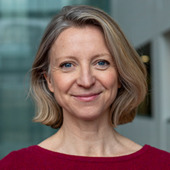
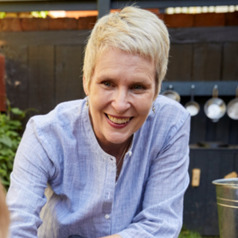
Sally Pearse
Strategic Lead for Early Years and Director of the Early Years Community Research Centre, Sheffield Hallam University
Professor Sally Pearse
Sally is the Strategic Lead for Early Years at Sheffield Hallam University. Since 2017 Sally has led the work with early years colleagues from across South Yorkshire to develop a range of collaborative projects. These have included a £1million project, funded through the DfE Early Outcomes Fund to transform the regions speech, language and communication services and the development of an Early Years Community Research Centre in Sheffield which is now delivering nursery places in an area of social and economic challenge. Prior to this role Sally was Hallam’s Head of Area for 0-5 Teacher Education. Before joining the university, Sally was a teacher, community development worker and the director of a charity that ran a day nursery, family learning and health projects and a community café. Sally was made a National Teaching Fellow in 2018 and is a Principal Fellow of the Higher Education Academy.
Less ![]()
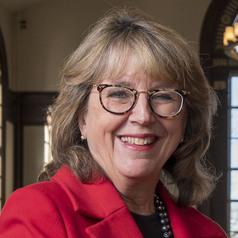
Sally Reis
University Teaching Fellow, Educational Psychology, University of Connecticut
Sally Reis is the Vice Provost for Academic Affairs, a Board of Trustees Distinguished Professor, and a Teaching Fellow in Educational Psychology at the University of Connecticut. She currently holds the Letitia Neag Chair in Educational Psychology. She was a public school teacher and administrator for 15 years, prior to her work at UConn. She has authored more than 250 articles, books, book chapters, monographs and technical reports. She has traveled extensively across the country conducting workshops and providing professional development for school districts on enrichment programs and gender equity programs. Sally serves on the editorial board of the Gifted Child Quarterly, and is a past-president of The National Association for Gifted Children. She is a fellow of the American Psychological Association and was named a Distinguished Scholar of the National Association for Gifted Children.
Less ![]()

Sally Riordan
Senior Research Fellow in the Centre for Teachers and Teaching Research, UCL
My expertise is in research methodologies in education, including randomised controlled trials and meta-analysis. I contribute to evidence reviews and impact evaluations of educational programmes and initiatives. Much of my work is focussed on socio-economic inequalities in education and I provide policy advice to the Social Mobility Commission. I also regularly work directly with schools, local authorities, and multi-academy trusts to improve the use of evidence in practice. This work includes supporting teacher research and developing school policy. I speak at research conferences and teacher training events.
Less ![]()
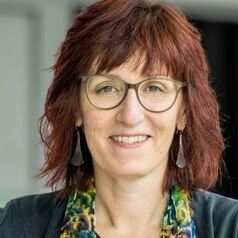
Sally Robinson
Professor, Disability and Community Inclusion, Flinders University
Sally is Professor of Disability and Community Inclusion in the College of Nursing and Health Sciences at Flinders University, South Australia. Her interests and expertise centre on the use of creative methods to engage people with cognitive disability in research to express their perspectives on key issues.
Sally has contributed to a wide range of research and evaluation in the social policy arena over the past decade, focusing particularly on safety and harm, accommodation and social exclusion concerns of people with disability.
She is actively engaged in community and government policy debates, frequently advising on the development of policy and practice on abuse and abuse prevention, the National Disability Insurance Scheme, and community inclusion for children and young people. Prior to life as a researcher, Sally has a long history of advocacy and support work with people with intellectual disability. She has worked with people with intellectual disability for over 30 years.
Less ![]()
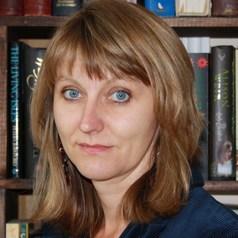
Sally Sheldon
Professor of Law, University of Bristol
Sally Sheldon is Professor of Law at the University of Bristol. She has published widely in this field, including two books on abortion law: 'Beyond Control: Medical Power and Abortion law' (Pluto 1997) and 'The Abortion Act 1967: a Biography of a UK Law' (CUP, 2022, co-authored with Gayle Davis, Jane O'Neill and Clare Parker, and funded by the AHRC, AH/N00213X/1).
Less ![]()

Sally Shinan Zhu
I am a Lecturer in Private and Commercial Law. I hold a PhD from LSE, LLM from Cambridge, and LLB from LSE. I currently sit on the Law and Technology committee in the Scottish Law Society.
Less ![]()
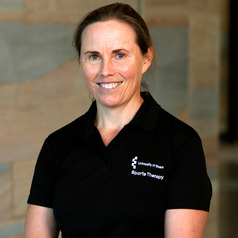
Sally Waterworth
Lecturer, School of Sport, Rehabilitation and Exercise Sciences, University of Essex
Sally joined the University of Essex in 2019. She graduated as a Sports Therapist in 2001 and has since spent time in academia, sport and clinical practice in the UK and in South Africa. She completed her PhD in Human Movement Science at the University of Pretoria in 2014 and an MSc in Sports Nutrition at Liverpool John Moores University in 2019. She is a member of the Society of Sports Therapists, Sport and Exercise Nutrition register and is a Fellow of the Higher Education Authority.
Research interests include training and nutrition for endurance sports (with a particular focus on iron-distance triathlon masters athletes) and physical activity and health.
Less ![]()
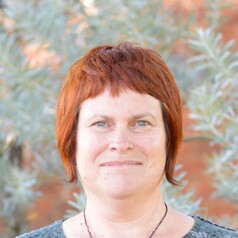
Sally White
Research fellow, Australian National University
Sally’s research interests focus on Islam, gender and politics in Indonesia.
From 2018 to 2021 Sally was a key researcher in the ‘Supporting the Rules-Based Order in Southeast Asia (SEARBO)’ project funded by the Australian Department of Foreign Affairs and Trade (DFAT). Under SEARBO, she headed up (with Edward Aspinall) a research component on women’s political participation in Indonesia, and (with Greg Fealy) a second component on polarisation within the Islamic community in Indonesia.
Sally’s current research focus, as part of a ARC Discovery Project led by Professor Edward Aspinall and Dr Eve Warburton, is on women's political representation in Indonesia.
Less ![]()
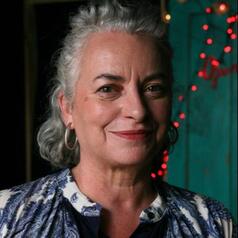
Sally Anne Gross
Reader in Music Business, University of Westminster
Sally Anne Gross is both a music industry practitioner and an academic. In 1993 she was the first women to work as a director of Artist and Repertoire at Mercury Records UK, and in the same year she chaired the first ever panel on women in the music industries at ‘In The City’ music conference in Manchester. Sally Anne has been working in the music industry for nearly three decades, as an artist manager, record label director and international business affairs consultant. In her current role at the University of Westminster, she is the program director of the MA Music Business Management where she teaches Intellectual Property and Copyright Management, Artist & Repertoire and Music Development. In 2016 she founded ‘Let’s Change the Record’ a project that focuses on bridging the gender divide in music production by running inclusive audio engineering and song-writing workshops for people identifying as women or non-binary. Sally-Anne is the co-author of ‘Can Music Make You Sick’ the largest ever study into mental health in the music industry that was funded by the charity Help Musicians UK and published in November 2017. She is interested in working practices in the music industries and the conditions of digital labour and specifically how they impact on questions of diversity and equality. Sally-Anne has four grown up children all of whom work one way or another with music, and although she always identifies as a ‘native’ Londoner, she actually lives in North Hertfordshire.
Research
Labour relations in the music industry - in sickness and in health. Gender inequality in the business of music and music production. Big data - what do the numbers really tell us? The politics of cultural production.
Less ![]()
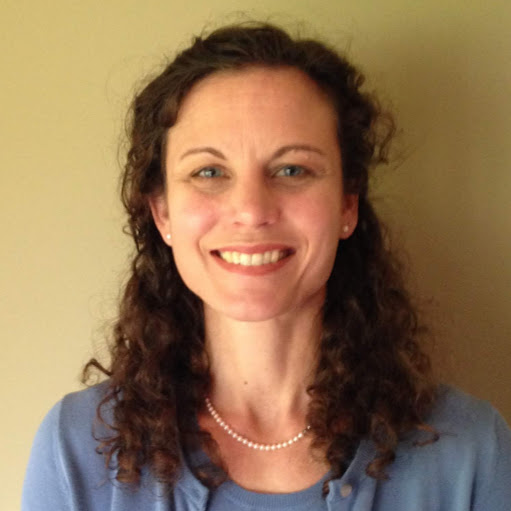
Sally C. Harris
Distinguished Lecturer in English, University of Tennessee
Sally C. Harris is a Distinguished Lecturer in the English Department at the University of Tennessee, Knoxville. In addition to essays on Le Fanu and Victorian fiction, she has developed a textbook for writing in the workplace, which she and colleagues are editing to make available as an Open Educational Resource. In an effort to make her classes more accessible, she has developed a number of online courses and continues to hone her online teaching skills. Dr. Harris teaches workplace writing, technical writing, British literature, detective & crime literature, and drama.
Less ![]()
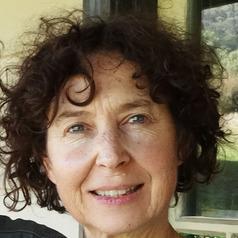
Sally May Gardner
Research Fellow, Deakin University
I am an Honorary Research Fellow at Deakin University. I have been a performing artist (dance) and have a BA in Asian Studies from the ANU, a Master's Degree in Critical Theory and PhD in Cultural Studies (Monash University 2004).
I was a Senior Lecturer in the School of Communication and Creative Arts at Deakin (2004-2017) and have published widely in Arts and Humanities journals and other forums. I translated a major dance reference work from French published as 'Poetics of Contemporary Dance' (Dance Books 2010), and have co-curated numerous conferences and other events including Dance Remains, a monthly foyer series of presentations at MUMA, 2017.
I was co-editor of Writings on Dance journal (1985-2012) and am currently co-editor of Palaver books and have co-edited 'Continent Aflame: reflections on an Australian catastrophe' and 'The Voice, A Question for the People'.
I am also active in the field of landcare and have recently been involved with Djarra women in the North Central Region of Victoria on a Victorian Government funded cultural burning and women's digging stick farming project, to be continued.
Less ![]()
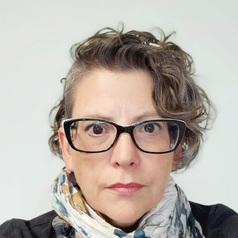
Sally-Anne Wherry
Senior Lecturer In Advanced Practice, University of Gloucestershire
Sally-Anne Wherry (she/her) is a senior lecturer in Gloucestershire, teaching Advanced Practice to healthcare staff. A specialist Parkinson and Movement Disorder nurse, she is currently working on a PhD around intergenerational trauma from the Contaminated Blood Scandal, of which her family are a part.
Less ![]()
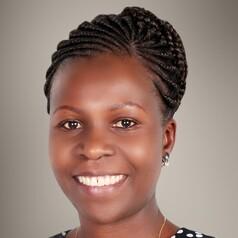
Salome A. Bukachi
Associate professor, Institute of Anthropology, Gender and African Studies, University of Nairobi
Prof Salome Bukachi is an Associate professor in the University of Nairobi’s Institute of Anthropology, Gender and African Studies. She has a background in medical anthropology with a bias to infectious diseases in the areas of - community participation, gender, health systems, socio-economic and behavioural studies, food safety and security, and water, sanitation and health (WASH). She works with various stakeholders both local and international in undertaking research and development on anthropological issues. Her main disease focus has been– African trypanosomiasis, Rift Valley fever, brucellosis among others. Her recent research projects include; IDRC/BMGF/Global Affairs Canada funded research, “Gender Inclusive Vaccine Ecosystem: Enhancing Distribution and Delivery Systems for New Castle Disease and Caprine pleuropneumonia among smallholder farmers under the Livestock Vaccines Innovative Fund; An Australian Centre for International Agricultural Research (ACIAR) funded research , “Rapid assessment of the impact of covid-19 on wet market reforms in Kenya, Philippines and Vietnam” and an African Oxford Initiative (AfOx) funded study, “Food safety and WASH in households with young children and its impact on their nutritional and health status in informal settlements in Nairobi, Kenya She serves as a member of the Africa Region Ecohealth Chapter, a member of the Africa One Health Network (AfOHNet) Steering Committee and a member of the One Health High level Panel (OHHLEP).
Less ![]()

Salsabel Almanssori
Adjunct Assistant Professor, Faculty of Education, University of Windsor
Dr. Salsabel Almanssori is an Adjunct Assistant Professor and SSHRC Postdoctoral Fellow at the University of Windsor. She teaches at the Faculty of Education and in the Department of Interdisciplinary and Critical Studies. Informed by her previous career as an elementary school teacher, her interdisciplinary research is focused on the areas of teacher education, public pedagogy, digital pedagogy, sexual violence, technology-facilitated violence, and experiential learning. She has published in peer-reviewed journals including the Journal of Curriculum and Pedagogy; Pedagogy, Culture, and Society; Gender and Education; Teaching and Teacher Education, among others. Salsabel is currently the Principal Investigator of two large SSHRC-funded Projects: (1) Pedagogy of social change: Teacher education to prevent sexual violence; and (2) The intersections of manosphere masculinity and technology facilitated sexual violence in Ontario secondary schools.
Less ![]()

Salvador Sánchez Tapia
Profesor de Análisis de Conflictos y Seguridad Internacional, Universidad de Navarra
Less ![]()

Sam Anderson
Postdoctoral Research Fellow, Simon Fraser University
I research how climate change impacts water resources in Western North America, where snow and glaciers play profound roles in shaping how our society functions. During my PhD I published research about community vulnerability to the loss of glacier ice, as well as several additional papers about how data science and deep machine learning can reveal the changing role of ice in our water systems. As a postdoctoral research fellow, I investigate how extreme events like heatwaves impacts river flows. My research has been published in outlets such as Nature Climate Change, Nature Communications, and Hydrology and Earth System Science. Beyond scientific research, I have published multiple essays in The Globe and Mail about the parallels between climate change impacts on ice and snow, and personal experiences such as healing from grief and fostering community.
Less ![]()
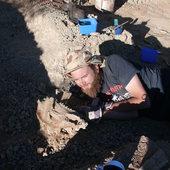
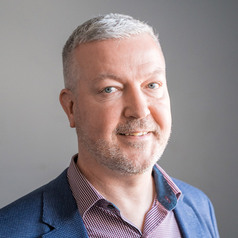
Sam Bennett
Disability Program Director, Grattan Institute
Dr Sam Bennett joined the Grattan Institute as its inaugural Disability Program Director in September 2023. Sam has worked on disability, aged care, and health reforms at a national level for over fifteen years.
In his previous role, he led the Policy, Advice and Research Division of the National Disability Insurance Agency, where he shaped and delivered national policy, and implemented the Agency’s Research Strategy. Sam was also responsible for supporting the work of the NDIS Independent Advisory Council.
In the UK he led transformation programs in the National Health Service (NHS) integrating social care and health services. He was responsible for the UK Government’s program to extend personal health budgets for people with complex disability and chronic health conditions until 2018.
Less ![]()

Sam Bourton
Senior Lecturer in Law, University of the West of England
Dr Sam Bourton is a Senior Lecturer in Law at the University of the West of England, a Fellow of the Higher Education Academy, and a Steering Board Member of the South West Fraud Forum. She teaches on the LLB and LLM programmes, with modules including the Law of Financial Crime and Regulation and International Financial Crime. Sam’s research interests lie in the law of financial crime, particularly tax evasion, fraud, and money laundering. Sam is currently writing a monograph for Routledge, which examines the law and enforcement policies pertaining to tax evasion in the United Kingdom and United States.
Less ![]()
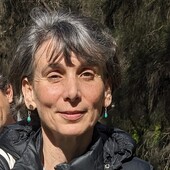
Sam Burrow
PhD candidate, School of Population and Global Health, The University of Western Australia
Less ![]()
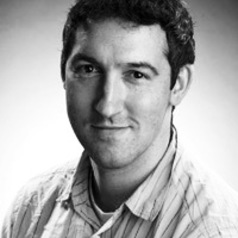
Sam Carr
Lecturer in Education, University of Bath
My research and teaching interests are focused upon the relationship between policy and psychology. I'm interested in how policy and discourse "shapes" us. I have published a lot in this area and am authoring my second book around educational policy and its link to motivation.
Less ![]()

Sam Crane
PhD Candidate, School of Arts and Creative Technologies, University of York
Sam Crane is an award-winning video artist and actor.
In a theatre career spanning twenty years he has been critically acclaimed for his performances at the National Theatre, Shakespeare’s Globe, in the West End and on Broadway.
His films have been screened at contemporary art and film festivals worldwide. He won the Critics’ Choice award at Milan Machinima Festival, First Prize for Video Art at The Athens Digital Arts Festival and was longlisted for the Aesthetica Art Prize.
His production of Hamlet in Grand Theft Auto won The Stage Innovation Award 2023 and is the subject of a forthcoming feature length documentary.
He is currently playing Harry Potter in the West End production of Harry Potter and the Cursed Child, and can soon be seen as Jacques-Louis David in Ridley Scott’s forthcoming film Napoleon for Sony Pictures and Apple TV.
He is a PhD candidate at York University's School of Arts and Creative Technologies (under the supervision of Dr Ben Kirman and Dr Karen Quigley) and is a member of the PEERS programme of artistic researchers at Zurich University of the Arts.
He read Classics as an undergraduate at Oxford University and trained as an actor at LAMDA where he won the Nicholas Hytner scholarship.
Less ![]()

Sam Firth
Lecturer School of Business and Creative Industries, filmmaker, University of the West of Scotland
Sam Firth is a practicing filmmaker and lecturer with an interest in both documentary and fiction filmmaking. Her work explores documentary form, the construction of personal narrative, notions of truth and objectivity and our relationship to place. Her fiction films have focussed specifically on the experience of young women. She has won awards internationally. She has also worked extensively as a community film practitioner.
Sam has been as a script consultant for a number of organisations including Film Four, Screen Yorkshire and the Welsh Arts Council. For many years Sam ran her own film production company Tiny Spark Productions where, she developed and delivered educational film programmes in primary and secondary schools across Scotland. Sam has also delivered programmes for the BFI Young Filmmakers Academy and taught at the Met Film School and has won awards for her work in this area.
Sam Firth's primary area of expertise is in filmmaking practice, but also the pedagogy of teaching filmmaking.
Sam's first three films use first person filmmaking to explore notions of self identity and the constuction of personal narrative. Her film Stay the Same which explored our relationship to time (2012) won International Competition in 2013 at Videoex Experimental film festival in Zurich and a special mention at Stuttgart Filmwinter. Her first film I.D. won the DepicT! Award at Encounters Film Festival and the Human Condition Competition at Chicago International Film Festival in 2010 and has been screened at the Tate Modern in Liverpool.
In 2012 Sam won a special commendation in the Wellcome Trust Screenwriting Award and an award of £10,000 for her work.
Her fiction film Creeling explored the depiction of teenage female sexuality and sexual desire in cinema. Creeling screened at the Edinburgh Film International film festival and is now used as a teaching tool in Germany and Austria .
Sam's most recent film The Wolf Suit premiered at the BFI London Film Festival. It explores reconstruction both in personal memory and in documentary and it's relationship to truth and reality, specifically in the context of families histories and 'gaslighting'.
Sam has evaluated, developed, facilitated and delivered community film projects with children and young people since 2001 and has won awards for her work in this area. Over this time Sam developed innovative ways of working with children and young people to explore their creativity through film. This interest in teaching creativity and encouraging creativity in teaching has continued in her role in HE and she has delivered workshops for academics on the subject.
Less ![]()

Sam Hirst
AHRC Funded Post-Doctoral Research Fellow in History, University of Nottingham
Dr Sam Hirst is a post-doctoral fellow at the University of Nottingham, working on displays and events for the bicentenary of Byron's death. They work on Gothic literature and theology and intersections of LGBTQIA+ history and literature. Their monograph The Theology of the Early British and Irish Gothic, 1764-1834 was released in 2023. They run an interdisciplinary online education project Romancing the Gothic, which runs free online classes, reading groups, and events
You can listen to them discussing Byron's letters here: https://www.youtube.com/watch?v=24OneUYJw_E&t=15s
Less ![]()
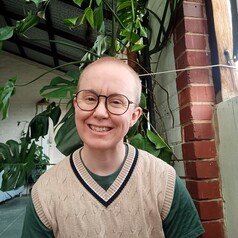
Sam Jeffrey
PhD Candidate, NICM Health Research Institute, Western Sydney University
Sam Jeffrey (he/him) is a PhD Candidate at NICM Health Research Institute, Western Sydney University. His PhD is investigating barriers to care for trans and gender diverse people with endometriosis, looking at gaps in Australia and Aotearoa health care provider curriculum as a key barrier to care. His research aims to assess the current inclusion of trans health in medical and complementary medicine curriculum across Australia and Aotearoa to develop curriculum recommendations and a trans health care module.
Less ![]()
- Market Data




















